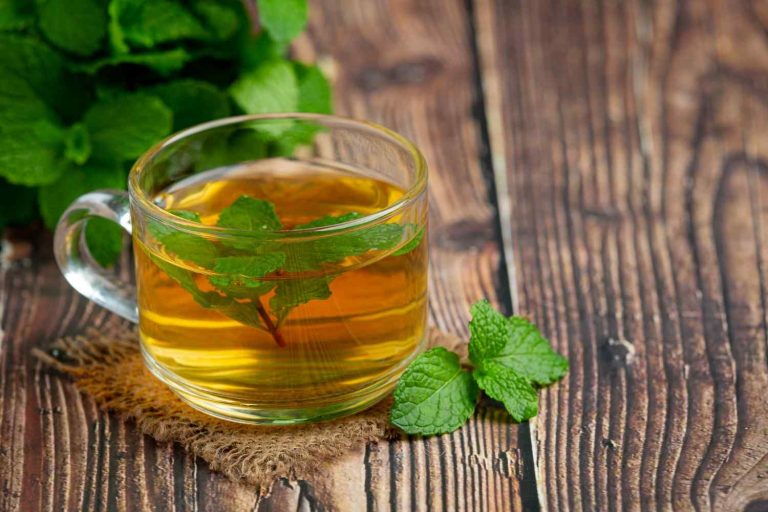Contents
Brain memory foods: What They Are And Why They Matter
Brain memory foods are the edible allies that power your recall, sharpen your focus, and protect the wiring of your mind. They’re not magic pills. They’re real nutrients—omega-3s, antioxidants, vitamins—that change the way your neurons talk to one another. If you want to remember names, dates, where you put your keys and why you walked into a room, this matters to you.
You don’t need a pantry full of rare ingredients. You need smart choices. The right brain memory foods make your day easier, your work cleaner, and your life less crowded by forgetfulness. I’ll tell you exactly which seven foods to prioritize, how they help, and how to eat them in ways that actually stick.
7 Brain Memory Foods To Boost Recall
The list below is simple, science-forward, and utterly practical. Each section explains how the food helps your brain, a quick tip to use it, and one real-life example. Use them together and you’ll notice the difference.
Blueberries: Tiny Antioxidant Powerhouses
Blueberries bring color and punch to your mornings. Rich in flavonoids, they reduce oxidative stress and inflammation—two major enemies of memory.
Research from reputable institutions shows blueberries improve communication between brain cells and can boost short-term memory. Sprinkle them on yogurt or blend them into a quick smoothie for breakfast. You get sweetness plus cognitive bang.
Example: Put frozen blueberries in oatmeal and add a tablespoon of ground flaxseed for added omega support.
Fatty Fish: Your Brain’s Good Fats
Fatty fish like salmon, mackerel, and sardines are top sources of omega-3 fatty acids, especially DHA. Your brain is composed largely of fat, and DHA is critical for neuronal membranes and signal transmission.
Clinical studies link regular consumption of fatty fish with slower cognitive decline. Aim for two servings a week. Pan-sear salmon with lemon and herbs—simple, fast, effective.
Tip: If you don’t like fish, high-quality fish oil or algae-based supplements are reliable alternatives.
Leafy Greens: The Memory-Preserving Greens
Spinach, kale, and Swiss chard hold folate, vitamin K, and lutein—nutrients tied to better cognitive performance and slower brain aging. They’re the unsung heroes of every brain-boosting plate.
Daily greens lower the risk of memory loss in several longitudinal studies. Toss them into a sauté, a salad, or a smoothie. One small cup a day makes a difference over time.
Example: Wilt spinach into scrambled eggs for a fast, memory-focused breakfast.
Walnuts: Crunchy Brain Builders
Walnuts are full of polyunsaturated fats and plant-based omega-3s that feed your brain and heart. They’re also a source of polyphenols—natural compounds that fight inflammation.
A handful of walnuts as a snack delivers healthy fats and satiety. Studies suggest walnuts can improve cognitive test scores in older adults when added consistently to the diet.
Tip: Keep a small jar of walnuts on your desk to replace sugar-based snacks.
Eggs: Affordable, Versatile, And Smart
Eggs are one of the most efficient ways to get choline, a nutrient your brain uses to make acetylcholine, a chemical essential for memory and mood. They also provide vitamin B12 and protein.
Eating eggs regularly supports attention and memory. Make them soft-boiled, poached, or in a quick frittata. Married with greens and whole grain toast, eggs are a powerhouse meal.
Example: A boiled egg with avocado on rye gives you choline, healthy fat, and fiber to steady blood sugar and focus.
Turmeric: Spice That Lights Up Your Synapses
Turmeric contains curcumin, a compound with anti-inflammatory and antioxidant effects that crosses the blood-brain barrier. It helps reduce plaques and tangles associated with cognitive decline in preclinical research.
Add turmeric to soups, stews, or coffee (golden milk). Pair curcumin with black pepper to boost absorption. Small, daily doses show the best results over time.
Tip: Try a turmeric-yogurt dip for a flavorful, memory-friendly snack.
Dark Chocolate: A Bit Of Joy For Your Brain
Quality dark chocolate, at least 70% cocoa, brings flavanols—compounds that improve blood flow to the brain and support memory performance. It’s also a mood elevator, and mood matters for recall.
A small square after lunch can sharpen cognition and steady stress. Choose dark, not sugary, chocolate and keep portions modest.
Example: Combine a square of dark chocolate with a handful of almonds for a satisfying, brain-forward treat.
How These Brain Memory Foods Work Together
Think of your diet like a team. Blueberries bring antioxidants. Fatty fish supplies structural fats. Leafy greens provide B vitamins. Walnuts and eggs give healthy fats and choline. Turmeric calms inflammation. Dark chocolate improves blood flow. Together they reduce damage, fuel neurons, and enhance communication.
Clinical evidence supports this teamwork. Large cohort studies and randomized trials connect dietary patterns rich in these foods to reduced cognitive decline. If you combine them, you’re stacking benefits—not chasing miracles.
Practical Ways To Add Brain Memory Foods To Your Day
You don’t need a nutrition degree. You need a plan.
- Swap dessert for a piece of dark chocolate and a few walnuts.
- Add blueberries to cereal or smoothies.
- Cook fatty fish twice a week—roast it with herbs.
- Toss a handful of leafy greens into every omelet.
- Spice stews and rice with turmeric and a pinch of black pepper.
- Keep hard-boiled eggs ready for quick proteins.
Small, consistent changes beat dramatic, unsustainable diets. Make one swap per week until your plate looks like a memory-support map.
What The Science Says
Research from major institutions shows diet affects brain structure and function. Long-term studies link vegetable-rich, fatty-fish-rich diets to better memory scores decades later. Clinical trials on individual supplements and foods show improvements in attention, memory, and processing speed in targeted groups.
Experts at universities and medical centers recommend these nutrients as part of a balanced approach to brain health. Combine diet with sleep, exercise, and social stimulation and you’re giving your brain the full suite of support.
Common Questions And Real-World Tips
Start small. Buy frozen blueberries if fresh are pricey. Tinned sardines deliver omega-3s for a tiny cost. If you fear weight gain, note that these foods—when eaten mindfully—support metabolism and satiety.
Don’t expect overnight miracles. Neural repair is slow. But measurable changes in memory and attention often show within weeks to months when diet is consistent.
Bottom Line
Bold, real, and useful: Include these seven brain memory foods in your life and you’ll give your recall and resilience a real shot. Make them habitual. Combine them. Listen to how your focus and mood change.
You deserve a sharper mind and a fridge that helps—not hinders—you. Start today.
Stay confident. Eat well. Remember more.
FAQ
FAQ
Which Brain Memory Foods Should I Eat First?
Start with what you’ll actually eat. If you like fish, prioritize fatty fish. If you prefer plant-forward meals, focus on blueberries, greens, and walnuts. The best choice is the one you’ll keep doing.
Can Supplements Replace These Foods?
Supplements can help—especially omega-3s or vitamin B12—but they don’t replace whole foods. Whole foods deliver fiber, cofactors, and satisfaction that supplements can’t mimic.
How Long Until I See Improvements In Memory?
Small improvements can appear in weeks for attention and mood. Meaningful changes in memory and brain health often show after months of consistent eating, plus healthy sleep and activity.
Are These Foods Safe With Medications?
Mostly yes, but check with your doctor, especially for prescription blood thinners (some herbs and high-dose supplements can matter). When in doubt, ask a healthcare professional.
—————————
References
-
The National Institutes of Health provides comprehensive information on diet and cognitive health and research findings (http://www.nih.gov).
-
Harvard T.H. Chan School of Public Health publishes evidence-based guidance on nutrients for brain health and dietary patterns that support cognition (http://www.hsph.harvard.edu).
-
The Mayo Clinic offers patient-focused advice on lifestyle changes, including diet, that may reduce the risk of cognitive decline (http://www.mayoclinic.org).
-
PubMed Central provides access to peer-reviewed research articles on flavonoids, omega-3s, and cognitive outcomes (http://www.ncbi.nlm.nih.gov/pmc).
-
The Alzheimer’s Association details dietary strategies including Mediterranean-style eating patterns associated with better brain outcomes (http://www.alz.org).
Get Your FREE Natural Health Guide!
Subscribe now and receive our exclusive ebook packed with natural health tips, practical wellness advice, and easy lifestyle changes, delivered straight to your inbox.




